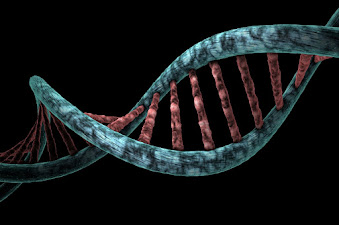Genetics and Oral Health
Genetics plays a significant role in oral health, just as it does in many aspects of human health. Certain genetic variations can influence an individual's susceptibility to various oral conditions and diseases. Here are some key aspects of how genetics affect oral health:
Tooth Development: The development of teeth is
influenced by genetic factors. Genes regulate the formation, eruption, and
positioning of teeth, which can impact the dental alignment and the risk of
malocclusions (misalignments of teeth).
Enamel Strength: The quality and strength of
tooth enamel are partially determined by genetics. Some people may have
stronger enamel, making their teeth more resistant to decay, while others may
have weaker enamel, making them more prone to cavities.
Saliva Composition: Saliva helps protect teeth
from decay by neutralizing acids and providing minerals that strengthen enamel.
Genetic factors can influence the composition of saliva, affecting its ability
to protect against dental caries (cavities).
Immune Response: The body's immune response to
oral pathogens and bacteria can also be influenced by genetics. Some
individuals may have a stronger innate defense against oral infections, while
others may be more susceptible.
Periodontal (Gum) Disease: Genetic factors can
contribute to an individual's risk of developing periodontal disease. Certain
gene variants may lead to an exaggerated immune response, increasing
inflammation and the risk of gum disease.
Taste Perception: Taste preferences and sensitivity
to certain flavors, like sweetness, are partly determined by genetic factors.
These preferences can impact an individual's dietary choices and, consequently,
their oral health.
Cleft Lip and Palate: Cleft lip and/or palate
are congenital conditions that affect the formation of the upper lip and/or the
roof of the mouth. These conditions often have a genetic basis.
It's important to note that while genetics can influence
oral health, it is not the sole determinant. Good oral hygiene practices, a
balanced diet, and regular dental check-ups are crucial for maintaining oral
health, regardless of one's genetic predisposition.
Dr. Pankti Patel is the Chief Dentist & Diagnostic expert
of Teeth Care Centre. She has extensive knowledge and experience, allowing her to
provide comprehensive and personalized care to her patients. Understanding
the genetic factors that contribute to oral health can help in the early
identification of potential risks and personalized approaches to preventive
care and treatment. However, more research is needed in this field to fully
comprehend the complex interactions between genetics and oral health.
No Retainers, No Result
Retainers are orthodontic customized devices that are used post orthodontic treatment i.e., when the final phase of teeth straightening is completed. Retainers are made of either wires or clear plastic, so that they can hold the teeth in their position to avoid relapse, i.e., the tendency of the teeth to move back to their original position.
There are two types of
retainers:
1.
Fixed Retainers
2.
Removable Retainers
Fixed Retainers:
Fixed Retainers stay permanently
in the oral cavity of a patient. It is bonded by a bonding agent to patients’
teeth. Generally, orthodontists provide fixed retainers in the lower front six
teeth to prevent relapse.
Removable Retainers:
As the name suggests, compared to fixed retainers, these can be removed on their own while eating and brushing and can be worn again by the patient. Removable retainers are Hawley retainers, clear retainers.
a. Hawley retainers: They are
traditional retainers made up of wires and acrylic or plastic material.
b. Clear Retainers: They are the
modern form of retainers made of just plastic material. E.g.: Essix retainers.
For how long should the retainers be worn?
Initially, for one year, the retainers are worn for 22 hours and can be removed only while brushing and eating. After that period, for one year, you will be advised to wear retainers only during nighttime. Later, for a year, it is advised to wear retainers every alternate night. So, to prevent relapse wearing retainers as guided by your orthodontist or dentist is important. It is also advisable to wear the retainers for a lifetime once a week every night to prevent relapse because our teeth are in a continuous physiological migration process i.e., they keep moving slowly all the time,
How to take care of retainers and oral hygiene?
·
When not wearing retainers, keep the retainers in the provided case
only.
·
Don’t put retainers in your pockets.
·
Always remove the retainers as taught and guided by your dentist only.
·
Never bend the retainers.
·
Always clean your retainers with toothpaste and toothbrush only. Never
use any cleaning liquids.
·
The retainers should not be washed under hot water.
·
For a fixed retainer, brush and floss regularly, to avoid bacterial
buildup.
·
Visit your dentist or orthodontist every 6 months for a routine
follow-up.
At Teeth Care Centre, we provide
the best and painless treatment for patients. Dr. Nirav Patel, the Best
Orthodontist in Ahmedabad with the best advanced technology and the best equipment,
provides the best clear aligner treatment.



